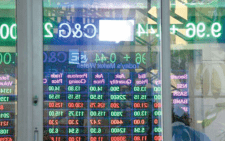Nairobi bourse share lending platform to boost trading activities

The Nairobi Securities Exchange (NSE) has launched a new system that will enable investors and traders to borrow a share of stock and sell it when the price increases with the hope of repaying the loan.
The new equities trading platform has been provided by the London Stock Exchange Group (LSEG) Technology – which is one of the world’s leading developers of high-performance trading systems.
John Kirimi, director of Sterling Capital, lauds the new system saying it investors and traders who borrow a share of stock and sell will be able to repay the loan by buying back cheaper shares later on.
“In trading lingo, when you own something, you are considered to be long. When you sell it, especially if you do not already own it, you are considered to be short. You do not have to be long before you go short,” said Kirimi.
Portfolio managers
According to Kirimi traders use short selling as speculation and investors or portfolio managers use it as a hedge against the downside risk of a long position in the same security or a related one.
The system intends to increase trading activities on the NSE.
“The system functionalities are in line with international standards and best practice as envisioned in the Kenyan Capital Markets Master Plan,” said NSE chief executive Geoffrey Odundo (pictured).
Speaking yesterday during the launch of the system, Odundo said the new equities trading system was approved by the Capital Markets Authority (CMA) on October 8.
“This strategy is not a bad way to make money, especially because, if the country’s economy continues to grow, businesses are going to expand and so are their stocks,” he said.
Odundo said the trading platform is similar to the one used by the LSEG technology adding that the system has come along with significant changes to the structure of the current trading process.
“We are excited to have an upgraded Automated Trading System that offers a more robust platform, which supports diversification of trading securities,” said Odundo.
According to Odundo, the new system is efficient, scalable and flexible and is in line with its strategic objective of increasing availability and accessibility of our system.
“Following the adoption of the new system, we expect an increase in trading activities and look forward to working together with all its stakeholders as we transition to the system,” said Odundo.
– Zachary Ochuodho













